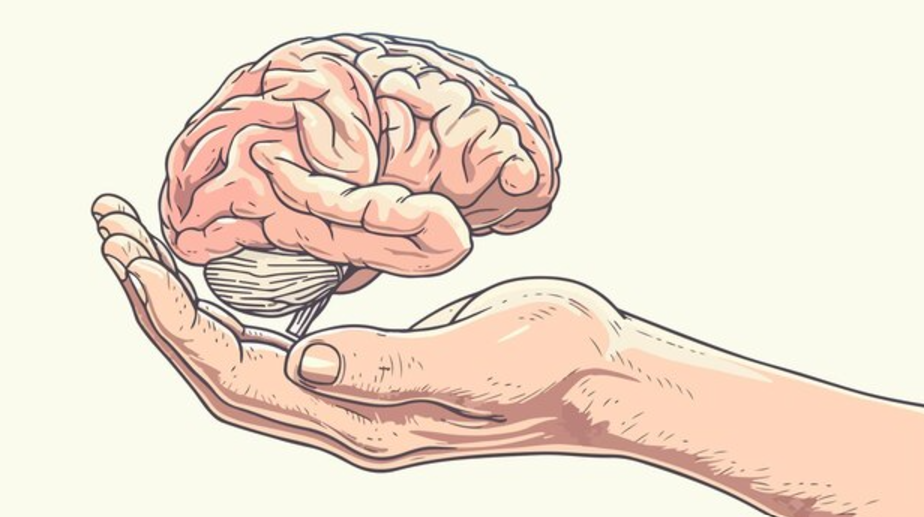-1732102164502.webp)
Alzheimer’s disease, a debilitating neurological condition, silently impacts the brain long before its most noticeable symptoms appear. This form of dementia is the most common among the elderly and affects the brain’s ability to function normally. Alzheimer's is caused by the accumulation of certain proteins, which causes the brain to shrink, leading to the death of neurons (brain cells). As the disease progresses, it severely hampers cognitive abilities such as memory, thinking, and reasoning.
According to the Alzheimer’s Association, over 8.8 million people aged 60 and above in India suffer from some form of dementia, making it a growing health concern. But what many don’t realise is that Alzheimer’s begins years before symptoms show up.

"Alzheimer’s disease-related changes in the brain can begin years before symptoms like memory loss appear," says Neha Sinha, dementia specialist, clinical psychologist, co-founder & CEO of Epoch Elder Care. "Studies show that the brain's activity begins to change long before you notice any cognitive impairment." Some brain areas may show increased activity, while others will show a decrease. These early changes are not always obvious to the naked eye, but advanced scans can detect them.
Research reveals that even before cognitive decline sets in, there are visible changes in brain blood flow. “Some areas experience an increase in blood flow, while others show a decrease,” explains Sinha. "This imbalance is the brain’s first response to the buildup of toxic proteins, but it’s not enough to prevent damage in the long term."
As the brain begins to cope with damage, it tries to reorganise itself. "The brain’s initial reorganisation efforts may not be noticeable, but over time, it loses the ability to compensate for the growing damage, leading to significant cognitive decline," Sinha notes.
While memory loss is often seen as the first major sign of Alzheimer’s, the roots of the issue run much deeper. "Memory issues often start with small forgetfulness or difficulties recalling recent events," Sinha explains. "But this could be years before more significant memory loss occurs."
"The medial temporal lobe, which plays a key role in memory, is one of the first areas to show structural damage," says Sinha. "Changes in this area can often be spotted through brain scans, providing valuable information on whether cognitive decline is imminent."
Elevated levels of Tau protein in the cerebrospinal fluid can indicate that neurodegeneration is taking place. "Tau protein levels can rise up to 34 years before cognitive symptoms appear," Sinha explains. "This early detection of biomarkers offers a window of opportunity for early intervention and care."
Eventually, the inability to compensate for brain damage leads to noticeable cognitive symptoms like confusion, disorientation, and trouble with daily tasks. "By the time these symptoms show up, the brain has already experienced significant changes," says Sinha. “That's why early detection is so important—it can help slow the disease's progression.”
Don't Miss: What Is Alzheimer's And What Happens When It Claims An Individual

Early detection of Alzheimer’s is critical for providing effective care. Neha Sinha stresses, “Identifying Alzheimer’s early on can significantly improve the management of the disease. When we catch it in the early stages, we can start personalised interventions that help slow down its progress and improve the patient’s quality of life.” This could involve medication, lifestyle changes, and therapies designed to support cognitive health.
Sinha concludes, “With advances in research, we are now better equipped to catch Alzheimer’s earlier than ever. But people must become aware of the silent changes that are happening long before the symptoms become obvious. The more we understand these early signs, the better we can prepare and intervene.”

By raising awareness of these early signs, we can ensure a better, more proactive approach to Alzheimer’s care. Families and healthcare providers working together can help those at risk maintain a higher quality of life and give them the tools they need to navigate the challenges ahead. With early intervention, there’s hope to slow down the progression of the disease and offer a brighter future for those affected.
Don't Miss: Use Ayurvedic Brahmi Herb To Treat Dry Scalp, Stress, Alzheimer's Disease & Arthritis
Keep reading Herzindagi for more such stories.
Image Courtesy: Freepik
Also watch this video
Herzindagi video
Our aim is to provide accurate, safe and expert verified information through our articles and social media handles. The remedies, advice and tips mentioned here are for general information only. Please consult your expert before trying any kind of health, beauty, life hacks or astrology related tips. For any feedback or complaint, contact us at [email protected].